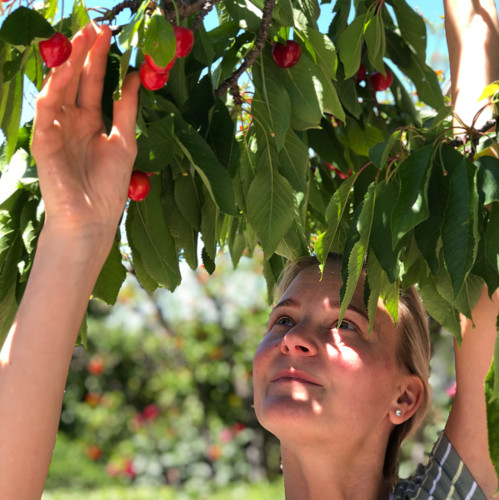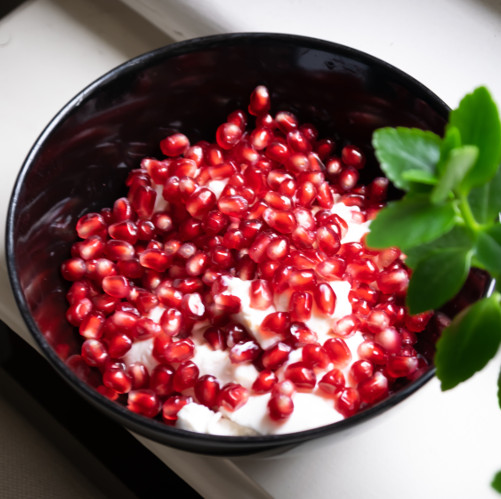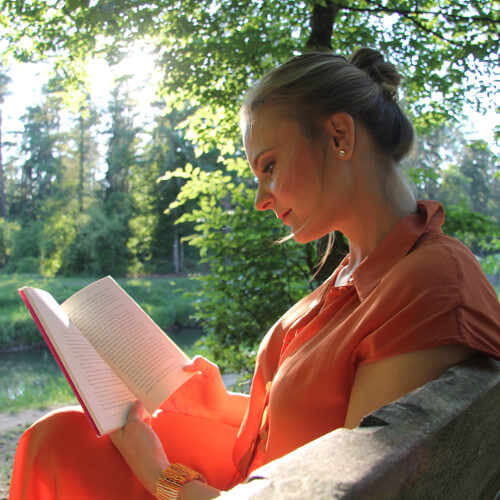
You are the gardener of your mind
Already as a young girl I was introduced to gardening by my grandparents. My most beautiful childhood memories are from me between flowers, vegetables and fruit trees which still live in me today. Although I didn't have much to do with gardening later in my daily life, I was overwhelmed by a special feeling every year when I visited my grandparents in Croatia. The daily routine revolved around the garden, watering, removing weeds, harvesting vegetables for lunch or dinner. When it comes to sowing, paying attention to which plant thrives in which location was crucial, which plant need more sun and which prefers the shade. What fascinated me most was directly harvesting and eating the ripe seasonal fruits. Cherries, peaches, figs, olives, pomegranates, apples, lemons, etc. Nothing gave me a better feeling than eating the fruit straight from the tree. I still climb up on trees, sit on a branch and enjoy the sweet delicacies. A luxury these days and I know how to appreciate it. But what does all of this have to do with life and psychology? When I started gardening myself again three years ago, I gradually noticed many things that we can adopt into our lives, nature is the greatest teacher.
Due to our very fast and modern society, we are moving further and further away from nature, many are already disconnected that they see humans as a separate entity from nature and do not recognize the connection, such as how the weather and our food affect our well-being. The more we move away from nature, the more ill we become, both physically and mentally. It is my intention with this blog entry to inspire others to think about the principles of nature in order to recognize that we are part of it. The more we are connected with ourselves, the better we feel physically, mentally and spiritually.
The mind is like a garden. Through my knowledge of Chinese medicine, yoga and naturopathy, I am more and more aware that we are gardeners of our mind and that we are responsible for “which thoughts” we cultivate. Thoughts are energy, and where we direct our attention is where energy flows and cultivates more of it. Here are a few ideas what you can do to make your thought garden more beautiful and fertile.
1. Have a clear idea of what your garden should look like
Everything starts with an idea, everything! You need a clear vision of what you want to cultivate in your garden in the first place. What kind of garden do you want? what should grow in it? How would you like to design it? The same questions apply to your life too, what kind of life do you want? What is your mission What do you want to achieve What do you want to have, experience and experience? When you have your idea and vision, you can start taking the first steps that will bring you closer to achieving this.
2. You have to set priorities
As you look at your list of ideas and wishes, start picking out the most important things. You cannot sow everything at once, not all plants are compatible with each other and later you will be left with a wild tangle and no longer know yourself where the beginning and the end is.
3. You need nutritious soil
If I had to translate this into psychological terms, this would be the area of self-care. A plant can only grow and thrive if it has the right soil for it. Not too dry, not too wet, enough nutrients, etc. Without self-care we have an increased risk of our body and mind through stress, improper nutrition, too much or too little (of everything) and of depriving our body of essential substances.
4. You reap what you sow
If you sow and care for weeds, poisonous or troublesome (ivy) plants, that will be your harvest. In thought, if you let negative, self-critical, destructive thoughts run free in your garden, it will be the product of your harvest. The weeds will also grow if you give them water and space.
5. Assess the condition of your garden
This reminds me of a client of mine who was very influenced by her environment. Together we worked out the picture of a flower that would not bloom. She was clearly doing badly because everyone said she was not good, beautiful or smart enough. Instead of believing this, I invited her to imagine that she was simply “planted” in the wrong place, and this environment did not allow her to grow and prosper. We began to assess her conditions: strength, weakness, likes, dislikes, character, temperament, people around her, etc. Very quickly she found out that it is not HER who is to blame, but that her environment has kept her from expressing her full potential. She is still working on it, but I am sure that when she has cultivated her garden, a beautiful, rare rose will bloom for all of us to see.
6. Build a garden fence
Create healthy boundaries. Keep people away who are not doing you good, learn to say “no”, take time for yourself, and don't let anything stand in the way between you and your vision.
7. Your garden needs constant maintenance
Daily mental-emotional hygiene is the key to true success. A garden needs care, attention, work (sometimes very, very strenuous and hard work). But if it was easy everyone would do it, and those who do will be greatly rewarded!
8. Be patient and trust the process
The time comes when you have to let go, wait until the seeds have germinated and fight your way through the dark earth to the sunlight. We can't do that for the seeds, we can only make sure that the conditions are right, but the seeds have to grow by themselves. Practice patience through meditation, and trust through reliable behavior.
9. Learn to deal with things that happen beyond your control
You will encounter resistance and obstacles, learn to deal better with such situations through coping strategies and not lose sight of your garden.
10. Harvest your harvest
Best case scenario, if everything went well, you can look forward to a rich harvest after a lot of hard work. A good life plan, new professional paths, financial security, a new relationship, trips and adventures, etc. On the other hand, if it did not go well, or as in most cases, the garden is simply ignored and the negative, poisonous plants have taken over, unfortunately, the harvest is a negative attitude toward life with many other issues along with it. As with everything, become aware of yourself, decide you want a change and then as always, everything starts with an idea.



